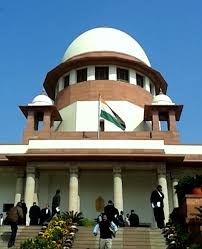Judicial System: Police Custody and Judicial Custody
India is well known for the fair judicial and prosecution systems. The courts, especially High courts and Supreme court, have always been ensuring protection of the rights of accused on principles of natural justice. They have also been relying on judicial precedents in their judgements.
Which is the judicial system being followed in India?
The country follows adversarial system where in the state (prosecution) is responsible for proving the case against accused. In exceptional cases like terrorism, the onus of proving innocence is on the accused. The accused is considered innocent till the allegation against him is proved beyond reasonable doubt.
What are the governing acts/codes for conducting criminal trials in India?
The following three codes/ acts govern the criminal trials in India.
a. The Code of Criminal Procedure, 1973 (Cr.P.C.);
b. The Indian Penal Code, 1960 (IPC);
c. The Indian Evidence Act, 1872 (IEA).
The Code of Criminal Procedure is an extensive procedural law that stipulates the method for collection of evidence, questioning of accused, inspection of witnesses, arrests, processes to be followed by Police and Courts, process of criminal trial, bail, method of conviction, and the rights of the accused for a fair trial.
The Indian Penal Code is the primary penal law of India. IPC is applicable to all offences, except for those which have been specifically provided under any other law.
The Indian Evidence Act deals with the law of "evidence", the proofs that can be presented in trial, style of submission of the evidence in trial and the evidentiary value. IEA also deals with the judicial assumptions, professional and scientific evidence. Certain other laws, have also been enacted to deal with evidences in the digital era.
What are the circumstances under which a suspect is arrested?
Police arrests a suspect on the following grounds:
1. Following a complaint or report
2. During the act of the crime
3. Based on the directions of intelligence agencies or proper authorities to protect interest of society.
The custody of accused may be required by the police to complete investigation and collect evidences. Law prohibits police keeping a person in custody beyond 24 hours from arrest without producing before a magistrate. However, it may be required to keep the accused away from the society for protection of society, to avoid attack on the accused and for completing investigation. The accused is produced before a magistrate within the time frame who may allow the accused to be held in police custody or judicial custody or go on bail.
What is meant by police custody?
The police may require the accused in their custody to complete investigation and collecting evidences. Section 167 of the Code of Criminal Procedures allows the police to have the custody of an accused for a period up to maximum 15 days on the order of a magistrate. An executive magistrate may order custody up to 7 days while a judicial magistrate is empowered to order custody up to 15 days. Police custody means that the physical custody of accused rests with the police.
What is meant by judicial custody?
In Judicial custody, the physical custody of the accused is with the magistrate. The maximum number of days for which an accused can be held in police custody is up to 15. In the case of certain crimes that may attract punishment of death, life imprisonment or imprisonment in excess of 10 years, the judicial custody can be extended up to 90 days and 60 days for all other crimes, if the magistrate is convinced of the reasons to keep the accused in custody.
What are the differences between police custody and judicial custody?
Police Custody:
a. Physical custody of accused is with police.
b. Accused is housed in the lock up in the police station.
c. Police custody is for maximum up to 15 days.
d. Police custody is possible only till charge sheet is filed.
e. No permission is required from magistrate for interrogation of the accused.
f. Police custody is often for non-bailable crimes.
Judicial custody:
a. Physical custody of accused is with magistrate.
b. Accused is housed in jail.
c. Judicial custody may extend to a period of 90 days for certain crimes and upto 60 days for other crimes.
d. Police cannot interrogate the suspect without permission of concerned judge.
e. Is provided when accused expresses risks to his rights while in police custody
It may be noted that the police custody/ judicial custody is examined only when the magistrate finds sufficient reasons to deny bail. Also, in certain crimes like terrerorism, the period of custody may vary depending on the special act under which the crime is dealt with.









